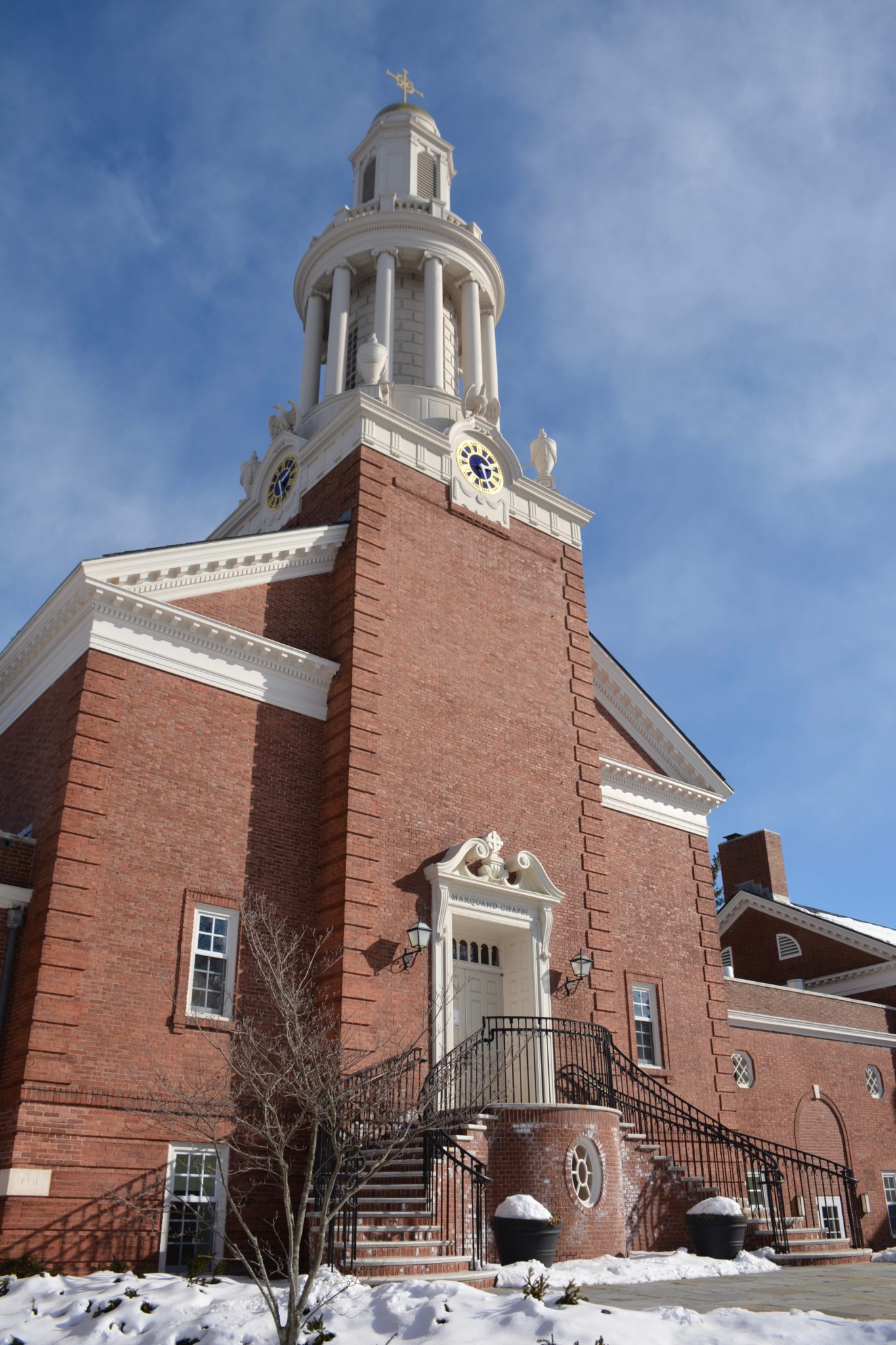
As more than 1,000 undergraduates investigate what makes life worth living in Laurie Santos’ wildly popular lecture “Psychology and the Good Life,” 250 other students at Yale and across the world are set to investigate that same question from a religious and philosophical angle this semester in a class hosted by the Yale Divinity School.
Since it was founded in 2014, Yale’s “Life Worth Living” course has caught on at other universities in the United States and overseas. It is offered at Colby College in Maine and at the University of Sheffield in England, where it is taught exclusively to first-year students. And this semester, for the first time, the course is also available at Hong Kong University.
Run by the Yale Center for Faith and Culture at the Yale Divinity School, “Life Worth Living” allows students to examine “the good life” from religious and secular perspectives, according to Yale Center for Faith and Culture director Matthew Croasmun DIV ’06, who teaches the course. Launched in 2014, “Life Worth Living” was created by Yale Center for Faith and Culture founder and Divinity School professor Miroslav Volf.
“The question of ‘what makes life worth living’ is the most important question of our lives,” Croasmun said. “What I’m hoping students get out of the course is an articulacy about the question of the good life and also that they come out of the class with a clearer picture of what it is they take to be a good life.”
Although the course is supported by the Divinity School, it is listed as a humanities class on Yale Blue Book and is generally taught to undergraduates. Students meet twice a week in a seminar and once a week in a lecture.
The syllabus explores how several religious and secular traditions — including Christianity, Buddhism, Judaism, Islam and branches of secular philosophy — characterize the meaning of life. Through foundational texts and guest lectures, students attempt to answer what makes a life worth living across “enduring lines of difference,” Croasmun said.
Ryan McAnnally-Linz DIV ’10, managing director of Yale Center for Faith and Culture and a professor of “Life Worth Living,” emphasized the importance of exploring both religious and secular traditions in the curriculum.
“On one hand, [the Yale Center for Faith and Culture] works at the Divinity School and does writing for Christian audiences. But at the same time we’re housed in a secular university, so we take very seriously the way every big conversation crosses important lines of difference,” McAnnally-Linz said. “The Life Worth Living Program is our contribution to that pluralistic conversation.”
Croasmun said the collaboration between Yale and other universities such as the University of Sheffield and Hong Kong University originated from research connections between faculty members at the different institutions. Daniel Chua and Casey Strine, who teach the course at Hong Kong University and the University of Sheffield, respectively, both collaborated with Divinity School faculty members on a larger research project called “Theology of Joy and the Good Life.”
In an email to the News, Chua explained that when he first heard about the course from Volf, he knew he had to introduce it to students at Hong Kong University.
“We don’t have religious studies at Hong Kong University and I felt our students were missing something vital in their education,” Chua wrote. “The question ‘what makes your life worth living’ is probably the most dangerous question in the Hong Kong University programme. The quest for answers does not simply inform your life, it may transform it and turn it inside out.”
Unlike at Yale, the “Life Worth Living” course at Hong Kong University is taught as a lecture with a capped enrollment of 120 students. The Hong Kong University version of the syllabus also caters to local traditions, such as Confucianism and Taoism.
According to Strine, who teaches the course at the University of Sheffield as a first-year seminar, the global expansion of the course comes at a crucial moment in the history of religious studies.
“Religion is not lessening in importance and prominence in our world — it’s growing,” he said. “To understand our world and to be able to move thoughtfully through it, you need to have some exposure to these different kinds of traditions.”
Kevin Jiang ’16, who took “Life Worth Living” as a Yale senior, said he decided to take it because he wanted to “take deeper dives into thinking about what’s worth wanting.”
Jiang now works as a computer science and math teacher at Phillips Academy Andover, where he started an after-school organization for students to discuss similar questions. His motivation to form the organization came from his own experience growing up in an atheist household, he explained.
“Growing up, I never had a church community to tackle these questions,” Jiang said. “I figured there’s probably some kids at Andover who might also be lacking this space to talk about these issues. … I was just sort of spreading a space, in a way.”
According to Caitlin Dermody ’18, who took the course last spring, the professors teaching it created a classroom environment built on “joint exploration, trust and honesty” among students. She emphasized that the course is not only an academic pursuit in which students learn the material; it also allows students to evaluate their own life choices and views of the good life, she said.
Since its launch in 2014, 126 Yale students have taken “Life Worth Living.”
Amber Hu | amber.hu@yale.edu







